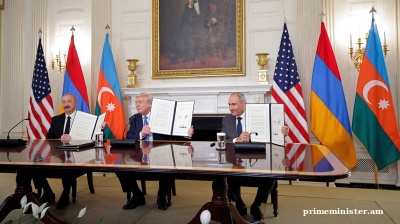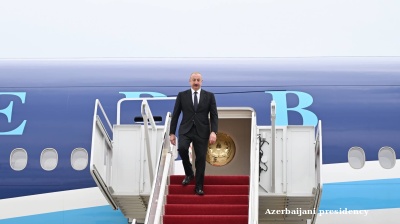Armenian authorities arrested Archbishop Bagrat Galstanyan and several of his supporters on June 25, accusing them of orchestrating a coup attempt to overthrow the government. The National Security Service (NSS) conducted raids across the country and detained individuals allegedly involved in the plot.
The Investigative Committee claimed that Galstanyan and his associates had been preparing to seize power through violent means since November 2024. The authorities allege that the group had planned to assassinate civilians, incite unrest and paralyse the country's security apparatus.
Audio recordings purporting to capture discussions about the conspiracy have been released, though their authenticity has not been independently verified.
Prime Minister Nikol Pashinyan has condemned the alleged plot, referring to it as a scheme by a “criminal-oligarchic clergy”. This is the second high-profile arrest this month, after Russian-Armenian billionaire Samvel Karapetyan was detained on similar charges.
Galstanyan, a prominent figure in the Armenian Apostolic Church and former leader of the Tavush Diocese, has been a vocal critic of Pashinyan's government. In 2024, he led mass protests against territorial concessions to Azerbaijan, rallying tens of thousands of people in Yerevan who demanded the prime minister's resignation. Despite their initial success, the movement was criticised for lacking a clear strategy for regime change.
As he was taken into custody, Galstanyan dismissed the coup allegations, stating: “Listen carefully, evil. You have very little time left. Wait a little longer, we'll come." His lawyer, Sergei Harutyunyan, claimed that no weapons or incriminating evidence were found during the search of Galstanyan's residence and labelled the charges as politically motivated.
Opposition parties, including the Armenian Revolutionary Federation (Dashnaktsutyun), have condemned the arrests as an attempt to stifle dissent in the run-up to the 2026 parliamentary elections. They claim that the government is trying to silence critics and consolidate power.
Armenia's traditional ally Russia was quick to react to the arrests, describing the situation as an internal matter, while emphasising the importance of stability in the region.
Pashinyan has repeatedly accused Moscow of planning and orchestrating coup attempts in Armenia with the aim of destabilising the country's political situation. The Kremlin has denied any such attempts, while the Armenian government has not yet provided any evidence of possible Russian involvement in anti-government movements in Armenia.
The arrests come amid heightened tensions between Armenia and Azerbaijan, as well as ahead of next year's parliamentary elections in Armenia. These are expected to be tough for the ruling party, which has lost the public trust it enjoyed following the 2018 Velvet Revolution.
News

Iran says next round of talks with US and Europe not yet scheduled
Iran’s foreign minister says no date set for US or EU talks, confirms IAEA meeting, warns on foreign presence in Caucasus, and condemns Gaza occupation.

Israeli UN representative says no plan for permanent Gaza occupation
Israel tells UNSC it does not plan to permanently occupy Gaza, outlining five principles for ending the war and calling for global focus on dismantling Hamas.

Georgian Dream accuses former-ruling UNM of starting 2008 Russo-Georgian war
On war's 17th anniversary, top Georgian government officials claim ex-president Mikheil Saakashvili provoked the conflict in comments quickly backed by Moscow.

Druze spiritual leaders in Suwayda unite in opposition to Syrian government
The three leading sheikhs of the Druze community in Syria’s Suwayda province have issued statements taking a clear stance against the Turkish-backed Damascus government.



